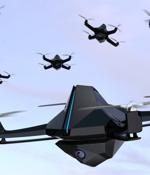Security News

Google is now blocking Russian users and developers from downloading or updating paid applications from the Google Play Store starting Thursday due to sanctions. "As part of our compliance efforts, Google Play is blocking the downloading of paid apps and updates to paid apps in Russia starting May 5, 2022," the company said in an update on its support website.

Hacktivists operating on the side of Ukraine have focused their DDoS attacks on a portal that is considered crucial for the distribution of alcoholic beverages in Russia. DDoS attacks are collective efforts to overwhelm servers with large volumes of garbage traffic and bogus requests, rendering them unable to serve legitimate visitors.

At least six different Russia-aligned actors launched no less than 237 cyberattacks against Ukraine from February 23 to April 8, including 38 discrete destructive attacks that irrevocably destroyed files in hundreds of systems across dozens of organizations in the country. DesertBlade, also a data wiper, is said to have been launched against an unnamed broadcasting company in Ukraine on March 1.

A DDoS attack works by several machines repeatedly flooding servers of a website with excessive requests in a short span of time, such that the servers run out of their allotted bandwidth, and become unresponsive. More recently, Russian hacktivist group "Killnet" has launched DDoS attacks on Romanian government sites.

A DDoS attack works by several machines repeatedly flooding servers of a website with excessive requests in a short span of time, such that the servers run out of their allotted bandwidth, and become unresponsive. Conducting DDoS attacks is a criminal offense in most jurisdictions.

More recently, Russian hacktivist group "Killnet" has launched DDoS attacks on Romanian government sites. Conducting DDoS attacks is a criminal offense in most jurisdictions.

Microsoft has revealed the true scale of Russian-backed cyberattacks against Ukraine since the invasion, with hundreds of attempts from multiple Russian-backed hacking groups targeting infrastructure and Ukrainian citizens. Microsoft has also observed a direct link between cyberattacks and military operations, with the timing between hacking attempts and breaches closely matching that of missile strikes and sieges coordinated by the Russian military.

China appears to be entering a raging cyber-espionage battle that's grown in line with Russia's unprovoked attack on Ukraine, deploying advanced malware on the computer systems of Russian officials. China has tried to play a neutral role since Russia began its invasion of Ukraine on February 24, with government officials saying they want to see a peaceful resolution.

In a first for a major Chinese tech company, drone-maker DJI Technologies announced on Tuesday that it will temporarily suspend business in both Russia and Ukraine. "DJI is internally reassessing compliance requirements in various jurisdictions. Pending the current review, DJI will temporarily suspend all business activities in Russia and Ukraine. We are engaging with customers, partners and other stakeholders regarding the temporary suspension of business operations in the affected territories," declared DJI in a canned statement.

The tables have turned with the NB65 hacking group modifying the leaked Conti ransomware to use in attacks on Russian entities. The Karakurt group handles data extortion tasks for the Conti operation when they are blocked from deploying their ransomware.